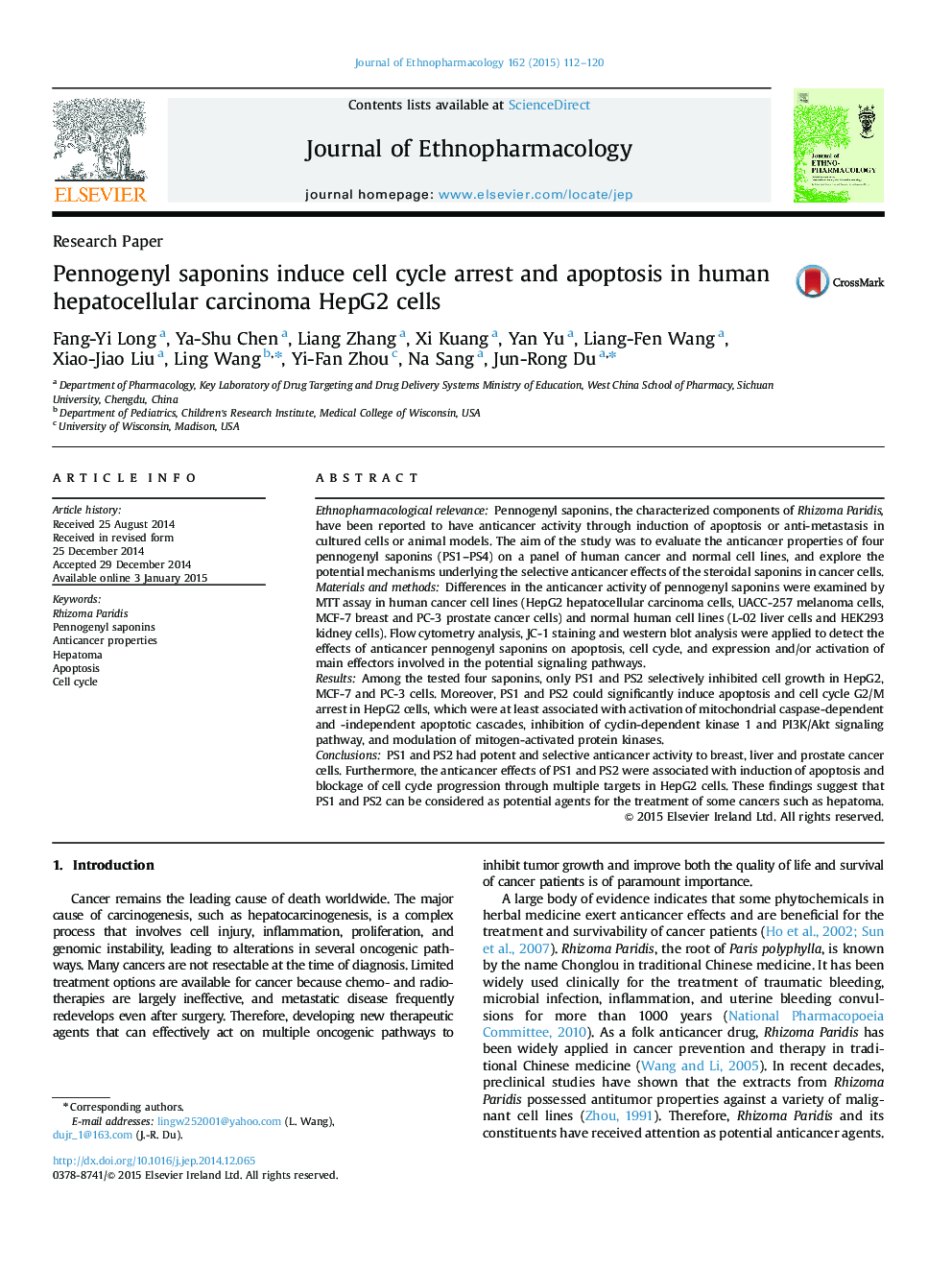| کد مقاله | کد نشریه | سال انتشار | مقاله انگلیسی | نسخه تمام متن |
|---|---|---|---|---|
| 5835415 | 1560400 | 2015 | 9 صفحه PDF | دانلود رایگان |

Ethnopharmacological relevancePennogenyl saponins, the characterized components of Rhizoma Paridis, have been reported to have anticancer activity through induction of apoptosis or anti-metastasis in cultured cells or animal models. The aim of the study was to evaluate the anticancer properties of four pennogenyl saponins (PS1-PS4) on a panel of human cancer and normal cell lines, and explore the potential mechanisms underlying the selective anticancer effects of the steroidal saponins in cancer cells.Materials and methodsDifferences in the anticancer activity of pennogenyl saponins were examined by MTT assay in human cancer cell lines (HepG2 hepatocellular carcinoma cells, UACC-257 melanoma cells, MCF-7 breast and PC-3 prostate cancer cells) and normal human cell lines (L-02 liver cells and HEK293 kidney cells). Flow cytometry analysis, JC-1 staining and western blot analysis were applied to detect the effects of anticancer pennogenyl saponins on apoptosis, cell cycle, and expression and/or activation of main effectors involved in the potential signaling pathways.ResultsAmong the tested four saponins, only PS1 and PS2 selectively inhibited cell growth in HepG2, MCF-7 and PC-3 cells. Moreover, PS1 and PS2 could significantly induce apoptosis and cell cycle G2/M arrest in HepG2 cells, which were at least associated with activation of mitochondrial caspase-dependent and -independent apoptotic cascades, inhibition of cyclin-dependent kinase 1 and PI3K/Akt signaling pathway, and modulation of mitogen-activated protein kinases.ConclusionsPS1 and PS2 had potent and selective anticancer activity to breast, liver and prostate cancer cells. Furthermore, the anticancer effects of PS1 and PS2 were associated with induction of apoptosis and blockage of cell cycle progression through multiple targets in HepG2 cells. These findings suggest that PS1 and PS2 can be considered as potential agents for the treatment of some cancers such as hepatoma.
76
Journal: Journal of Ethnopharmacology - Volume 162, 13 March 2015, Pages 112-120